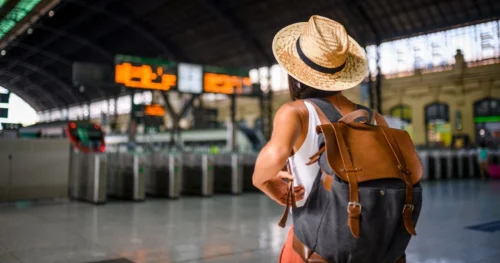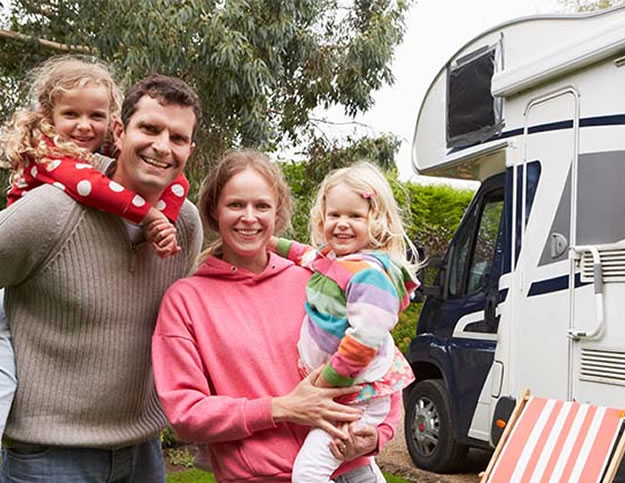Traveling is one of life’s greatest joys, but it can also take a surprising toll on your body. Between long flights, dry cabin air, disrupted sleep, and shifting time zones, even seasoned travelers can feel drained and disoriented upon arrival. The good news is that with a few mindful strategies, you can stay healthy, comfortable, and full of energy from takeoff to touchdown. These practical habits can help you feel your best both while flying and upon arrival at your new destination.
Here are 20 healthy travel habits to help you maintain your wellness routine while you’re on the go. Whether you’re traveling for business, adventure, or relaxation, these tips will help your body adapt smoothly to the challenges of time-zone changes and keep you refreshed throughout your trip.
Top 20 Healthy Travel Habits for Energy and Balance
1. Prioritize Sleep Before You Go
Sleep is the foundation of good health, especially when preparing for travel. If you start your trip already exhausted, jet lag and travel fatigue will hit much harder. Aim to get at least seven to eight hours of rest each night in the days leading up to your flight. If you’re traveling across multiple time zones, begin adjusting your bedtime a few days in advance to shift your internal clock toward your destination’s schedule gently.
Establishing a calming pre-sleep routine can also help. Avoid screens for at least an hour before bed, keep your room dark, and practice deep breathing to help relax your body and mind. Arriving at the airport well-rested not only enables you to handle travel stress better but also strengthens your immune system, making you less likely to contract an illness during your journey.
2. Stay Hydrated
Airplane cabins are notoriously dry, and that can cause dehydration faster than you think. Dehydration can lead to headaches, fatigue, and dry skin, and can even exacerbate jet lag. The best strategy is to bring a refillable water bottle and sip regularly during your flight. Drink at least one glass of water every hour while flying.

You should also go easy on Alcohol and caffeine, as both can dehydrate you and disturb your sleep pattern. If plain water gets boring, try infusing it with lemon or adding electrolyte packets to mix in. Staying hydrated helps keep your energy levels steady and your body’s systems functioning optimally, making your arrival much smoother.
3. Move Often During the Flight
Sitting for long periods can cause your muscles to become stiff and slow down your circulation. During a long flight, try to move around every hour or two. Stand up, stretch your legs, and walk down the aisle. Even while seated, you can perform small exercises, such as rolling your shoulders, flexing your ankles, and tightening your calf muscles.
These simple movements may seem minor, but they go a long way toward preventing fatigue and swelling. They also reduce the risk of blood clots during long flights. The key is to keep your body active enough that your blood keeps flowing and your joints don’t feel locked in place. You’ll feel lighter and more energized once you land.
4. Set Your Watch to Destination Time
As soon as you board the plane, change your phone or watch to your destination’s time. This psychological trick helps you start adapting before you even land. Try to eat, rest, and move according to that time zone as much as possible. It signals to your brain that it’s time to start syncing your internal rhythm with your destination’s schedule.
While it may feel strange at first, this simple adjustment helps reduce confusion once you arrive. It can also help you decide whether to nap on the plane or stay awake. The sooner your body starts thinking in local time, the faster you’ll recover from jet lag and get into the flow of your trip.
5. Eat Light and Smart
Eating heavy meals before or during your flight can make you feel bloated and sluggish. Instead, choose lighter, balanced options like salads, fruits, and lean proteins. Small, frequent meals are easier for your digestive system to handle than eating large meals all at once. If possible, avoid processed or salty foods that can cause dehydration.
Once you reach your destination, try to eat at local meal times. Aligning your eating schedule with the local time helps your body adjust faster to its new rhythm. Choose nutrient-rich foods to fuel your energy and support your immune system, especially after a long journey.
6. Get Sunlight at the Right Time
Natural light is one of the most potent tools for resetting your internal clock. After arriving, step outside into the sunshine as soon as you can. Morning sunlight helps you wake up earlier when traveling east, while afternoon sunlight is better when heading west. Your body uses light exposure to determine when to be alert and when to rest.
If you can’t get outside, open your curtains wide or sit near a window to soak up natural light. Even a 15-minute walk outdoors can make a noticeable difference in how awake and refreshed you feel. This habit not only improves your energy but also helps regulate your sleep-wake cycle naturally.
7. Create a Comfortable Sleep Environment
Getting quality sleep in a hotel room or Airbnb can be tricky. Unfamiliar surroundings, new noises, and different temperatures can all disrupt your rest. Bring small comforts from home, like an eye mask, earplugs, or your favorite pillowcase. These familiar items can help you feel more at ease and fall asleep faster.
Try to keep your sleep environment as dark and cool as possible. Lower the thermostat, close the curtains, and silence any unnecessary noise. If you’re sensitive to light or sound, consider using a white noise app to help block out distractions. A good night’s sleep is essential for adjusting to new time zones and maintaining your energy during travel.
8. Avoid Long Naps After Landing
It’s tempting to crash into bed after a long flight, especially when your body feels entirely out of sync. But long naps can delay your adjustment to the local time zone. If you must nap, keep it short—around 20 to 30 minutes—to recharge without falling into deep sleep.
Instead of sleeping the day away, stay active and exposed to daylight until bedtime in your new location. Go for a walk, grab a light meal, or engage in an activity to keep active. Once local bedtime comes, you’ll be more likely to sleep soundly through the night and wake up refreshed.
9. Pack a Sleep Kit
A small travel sleep kit can make a world of difference during long flights or overnight stays. Include essentials like a neck pillow, eye mask, earplugs, lip balm, and a travel-size moisturizer. Cabin air is dry, and these items help you stay comfortable during your flight.
You can also include a lightweight scarf or blanket to stay cozy and regulate temperature. These small comforts create a more relaxing environment, which signals your body that it’s time to rest. Feeling comfortable and calm helps you arrive well-rested, rather than exhausted.
10. Dress in Layers
Airplanes can swing between hot and cold quickly, and airports aren’t much better. Wearing layers allows you to adjust easily without discomfort. Start with breathable fabrics and add a light sweater or jacket you can remove as needed.
Comfortable clothing allows you to move freely and improves circulation, especially during long flights. Avoid tight waistbands or restrictive outfits that can make sitting for hours uncomfortable. A soft scarf can double as both a fashion accessory and an impromptu blanket when the cabin gets chilly.
11. Keep Your First 24 Hours Flexible
Don’t overload your schedule the moment you arrive. The first day is about adjusting, not sprinting through a packed itinerary. Give your body time to settle in by planning low-energy activities, such as strolling through the city or enjoying a relaxed meal.
This gentle approach helps prevent burnout and gives you space to listen to your body’s signals. If you force too much too soon, you risk feeling drained for the rest of your trip. A flexible start ensures you can enjoy everything afterward with full energy.
12. Choose Nutritious Foods
Exploring local cuisine is part of the fun, but balance indulgence with nourishment. Try to eat fresh, whole foods whenever possible—fruits, vegetables, lean meats, and grains. These provide vitamins and minerals that help your body recover from the stress of travel.

Limit overly rich or greasy foods, especially right after landing, as your digestive system is still adapting. A colorful plate is a good indicator that you’re getting a mix of nutrients. Healthy eating while traveling helps keep you energized and prevents midday crashes.
13. Use Caffeine Wisely
Caffeine can be your best ally or your worst enemy when traveling. Used strategically, it helps you stay alert during daytime hours in a new time zone. If you’re trying to fight jet lag, drink coffee or tea in the morning or early afternoon.
However, avoid caffeine in the late afternoon or evening since it can interfere with your sleep. If you crave a warm beverage later in the day, switch to herbal tea instead. Being smart about caffeine allows you to enjoy its benefits without the drawbacks.
14. Limit Alcohol
A glass of wine or cocktail can feel relaxing after a long trip, but too much Alcohol can worsen dehydration and disturb your sleep. It can also make you groggy or disoriented the next day, which isn’t ideal when you’re exploring somewhere new.
If you do drink, keep it moderate and avoid Alcohol close to bedtime—alternate every alcoholic drink with a glass of water. By keeping your intake low, you’ll wake up feeling more refreshed and better equipped to enjoy your day.
15. Stay Active Once You Arrive
One of the most effective ways to combat jet lag and fatigue is through regular physical activity, such as light exercise. Even a 20-minute walk around your hotel area can boost your mood and circulation. If you have access to a gym, try gentle stretches, yoga, or a light workout to wake your body up.
Physical activity also helps regulate your internal clock by signaling that it’s daytime. Plus, it’s a great way to discover new places—walking or biking lets you see your destination from a fresh perspective while keeping your energy high.
16. Listen to Your Body
Your body communicates clearly when it needs rest, water, or food. If you’re feeling dizzy, short-tempered, or sluggish, take a break. Travel is meant to be enjoyable, not a marathon.
Sometimes slowing down is the healthiest thing you can do. Permit yourself to skip a late-night outing or a busy tour if you need downtime. Listening to your body helps you avoid burnout and enjoy your trip more deeply.
17. Pack a Mini Wellness Kit
Preparation can save you from unnecessary stress on the road. Bring along a small wellness kit with essentials like hand sanitizer, tissues, basic medications, and vitamins. Add moisturizer, sunscreen, and a small pack of disinfectant wipes for hygiene.
This kit helps you stay comfortable and ready for unexpected situations, from minor headaches to digestive issues. It’s a small step that adds a big sense of security while traveling in unfamiliar environments.
18. Manage Your Screen Time
Excessive screen time, especially before bed, can confuse your body clock and make it harder to fall asleep. Try to limit your exposure to bright screens in the evening. Switch your devices to night mode or keep them out of reach before going to bed.
Instead of scrolling, use that time to unwind with a book, listen to calming music, or plan your itinerary. Reducing screen time helps you sleep better and keeps your mind more present during your trip.
19. Take Care of Your Mental Health
Traveling can be exhilarating, but it can also be overwhelming. New environments, language barriers, and constant relocation can lead to mental fatigue. Stay grounded by maintaining some aspects of your 0normal routine, such as journaling, meditation, or a morning stretch.
Connecting with loved ones through calls or messages can also help reduce loneliness during solo travel. Take a moment to slow down and appreciate the present rather than rushing from one sight to another. A healthy mindset is the secret to truly fulfilling travel experiences.
20. Be Patient With Your Body
Adjusting to a new time zone takes time, and everyone adapts at a different pace. Give yourself permission to rest and recover without guilt. Try to avoid scheduling demanding activities immediately after a long flight.
Accept that your body needs time to recalibrate. Within a day or two, your energy levels will balance out, and you’ll be ready to explore at full speed. Patience is the final ingredient for a smooth and healthy travel experience.
Your Journey to Healthier Travel
Healthy travel is all about preparation, balance, and awareness. By following these simple yet effective habits, you can maintain high energy levels, a steady mood, and a body that feels its best across time zones. Remember, the goal isn’t to stick to a rigid routine but to stay flexible and mindful of your body’s needs.
With these twenty healthy travel habits, you’ll not only arrive at your destination feeling refreshed but also enjoy your adventures to the fullest. Whether it’s a business trip or a well-earned getaway, taking care of your health ensures every journey becomes a rewarding one. Safe travels and happy exploring!















